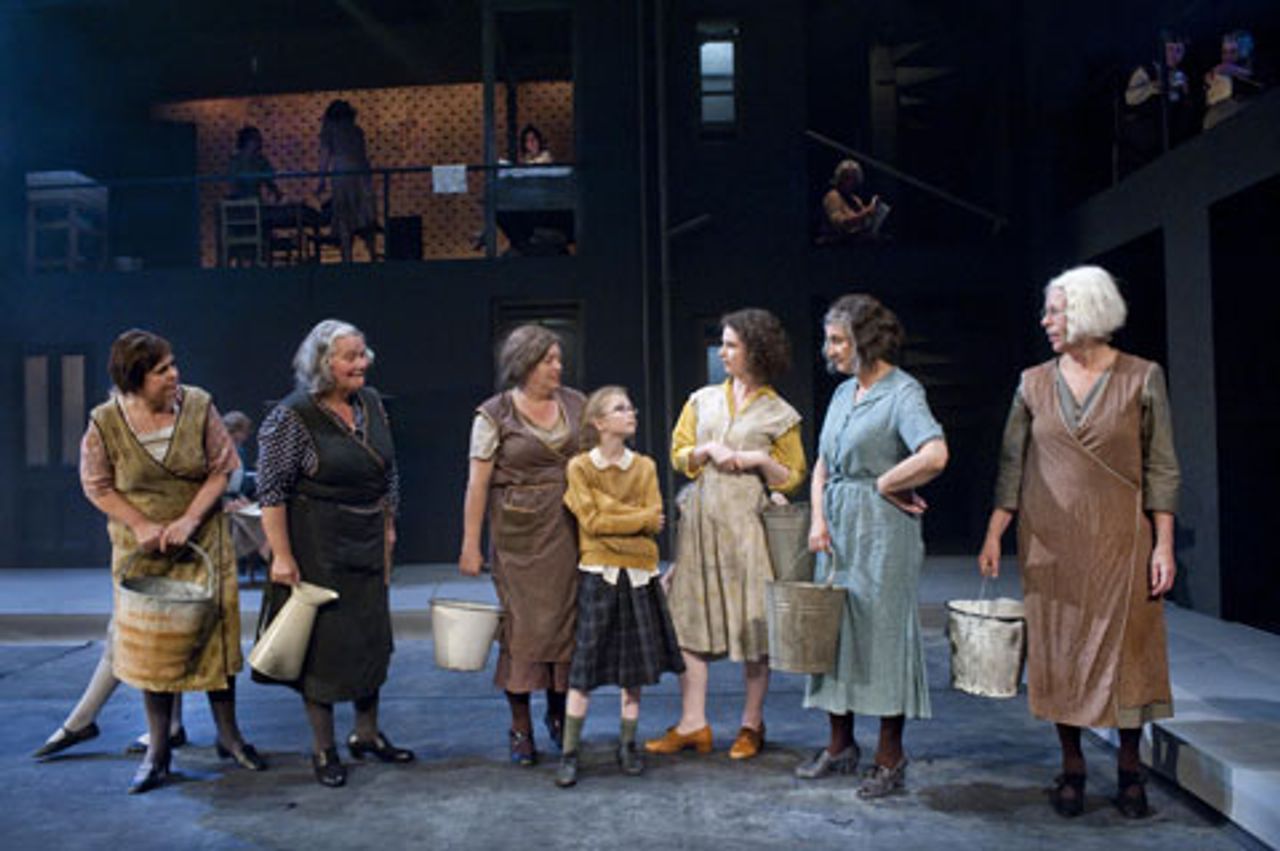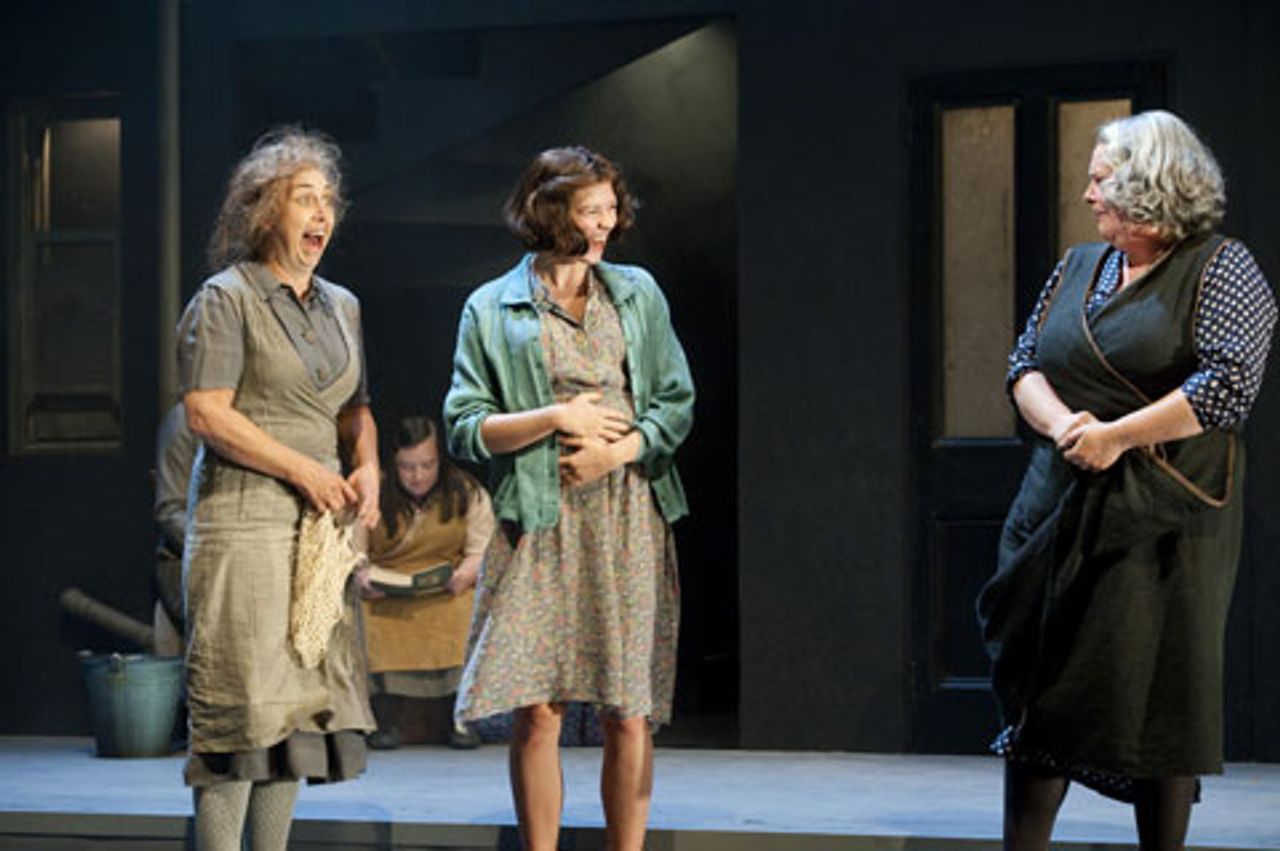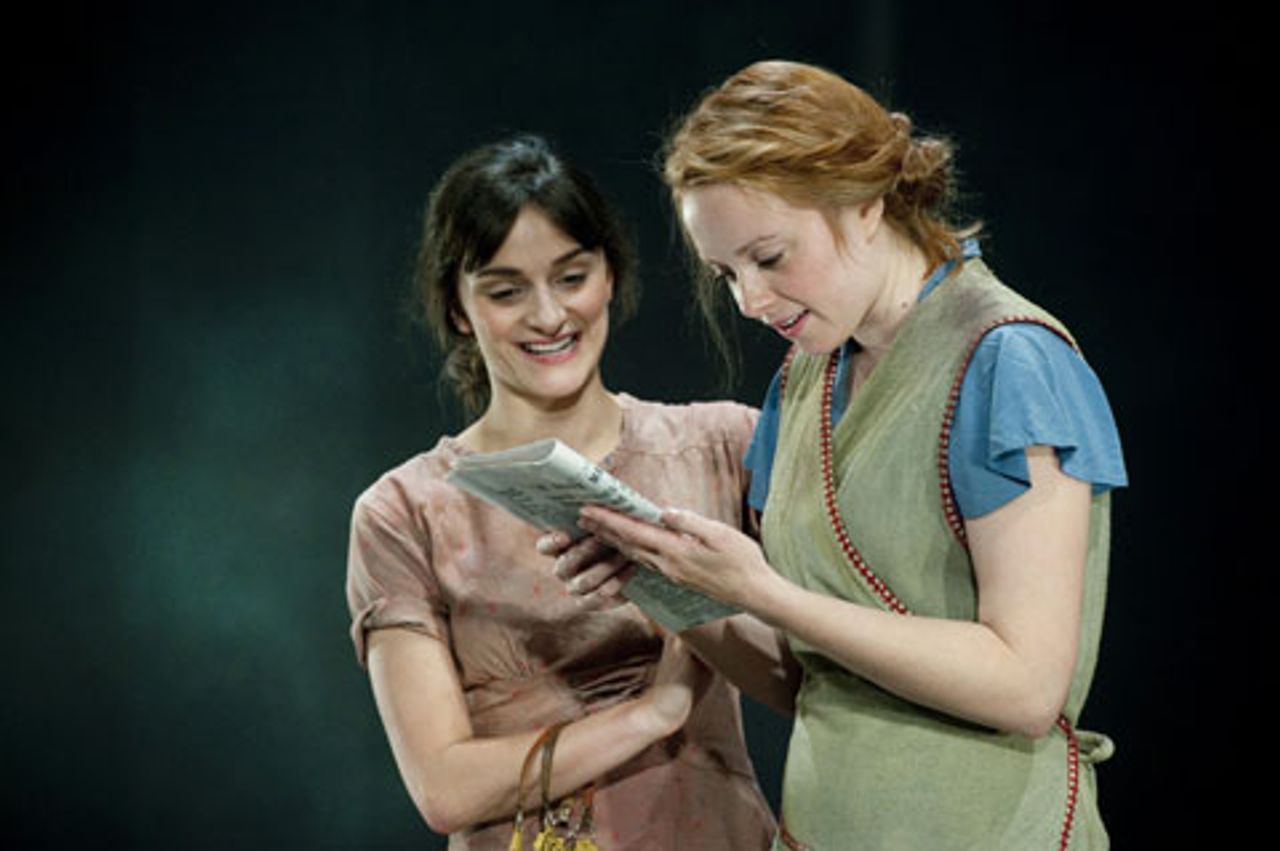Set in Dundee, Scotland in the late 1930s, She Town tells of the struggles of a group of working class women and their families to make ends meet. And also to make sense of the wider world …
By Scottish playwright Sharman Macdonald, the piece incorporates significant political developments, in particular the Spanish civil war and the desire of many to participate in the fight against fascism by joining the International Brigades.
The production staged by the Dundee Repertory Theatre last month included an all-female cast of more than 40. The set represented tenement blocks where the characters live and in which the various scenes take place.
Employed in the mills, which dominated the city’s industrial activity at the time, the story follows the protagonists as they attempt to defend their meagre standard of living against the mill owners. At the same time, many of the women are engaged in auditions for a choir to support left-wing American singer and actor Paul Robeson, who is to give a concert in the city’s Caird Hall.
 A scene from She Town
A scene from She TownThe play does not shy away from the grinding poverty faced by broad sections of the population in the 1930s. A young girl with measles fights for her life, but the family is too poor to pay for a doctor. A woman laments her inability to pay for her husband’s burial a year after his death.
A prostitute seems more or less satisfied with her occupation, while an alcoholic, despite her good humour, has given up on life and any hope of social improvement.
The production contrasts popular suffering with the comfortable lifestyle enjoyed by the mill owners, represented by Mrs Blair. The owners live in large houses, employ cleaners and cooks and disdain the miserable conditions of their employees.
Against this backdrop, various conflicts develop. Isa (Joanne Cummins), one of five sisters, is a young worker aware of the injustices she and her colleagues are made to endure.
 Another scene from She Town
Another scene from She TownAs the play begins, the women receive their weekly pay from the mill. Not for the first time, it has been cut. An article Isa wrote on the plight of the workers has been published in the Daily Worker, the newspaper of the Communist Party of Great Britain (CPGB).
Isa’s relationship to the Stalinist CPGB is never fully explored, although it seems she may have contact with a party member who does not appear. At any rate, she is a determined individual driven by healthy class hatred.
When the workers decide to strike, the play clearly identifies the class system as the enemy. Isa observes that the mill owners are “nothing without us”, because the labour of the workers produces profits. She denounces a system in which food, health care and the right to a home are dependent on the ability of the individual to pay.
When later confronted by the mill owner, Isa defiantly responds to Mrs Blair’s charge of being envious by arguing that the wealthy woman’s privileges should be made available to all.
As the workers shut down the factory, Mrs Blair informs them that failure to accept the wage cut will result in a complete shutdown. “We’ll move production to India”, she declares, where labour costs are cheaper.
Isa denounces this as “empty threats”. The strike, however, is finally defeated and Isa declares forlornly that she has “all this fight” in her, but nowhere to go.
This is not simply a personal failing. Although this is not made explicit, or perhaps even understood by the playwright, the disorienting role the CPGB played in betraying the struggles of the working class is central to the events. The nationalist conceptions developed by the Stalinist bureaucracy in the Soviet Union, with its doctrine of “socialism in one country”, rendered the CPGB incapable of advancing a struggle against capitalism.
The bureaucracy’s adoption of Popular Frontism in 1935 meant the cultivation of alliances with sections of the bourgeoisie and hostility to struggles of the working class that threatened those alliances, all supposedly in the name of “defending the Soviet Union”. In Spain the Stalinists worked to ensure that the strivings of the working class remained subordinated to the bourgeois Republicans.
A strength of She Town is its presentation of the Spanish events as bound up with the Dundee workers’ daily struggles. One of the women remarks that those suffering bombardment in Madrid are ordinary people “just like me.”
The Spanish struggle touches everyone. As her choir audition piece, Isa chooses an anti-Franco song in Spanish she has picked up from her brother. The otherwise snobbish music teacher is visibly moved, declaring in response to Isa’s wish to go to fight in Spain that “They don’t all come back.”
As in many other cities and towns across Britain, workers in Dundee joined the International Brigades. A memorial in the city commemorates 17 men who were known to have died in the Spanish conflict.
Isa and her friend Judith (Angela Hardie) decide to travel to Spain to join the struggle, driven by their conviction that fascism represents a growing danger, having already taken hold in Germany and Italy.
 Angela Hardie (left as Judith) and Joanne Cummins as Isa
Angela Hardie (left as Judith) and Joanne Cummins as IsaAt times, the wrongheaded notion that “democratic” Europe is fighting fascism is hinted at, but in general the underlying political issues are not pursued in She Town. In remarks to the arts blog Coffee-Table Notes, Macdonald acknowledges her confusion:
“There’s something about its [the Spanish civil war’s] complexity and the fact that those who fought thought that if they stayed they could get rid of Franco, the sheer bravery of them. There’s also the tragedy of the left fragmenting, while the right stays as a cohesive whole. I suppose it’s because I don’t understand all those complexities that I keep on going back to it, just so I can try and understand it.”
Its limitations notwithstanding, the play makes a serious attempt to grapple with the daily struggles of working people, and its portrayal of social conditions is remarkably contemporary as the current crisis means a return to dire poverty for increasing numbers of people.
